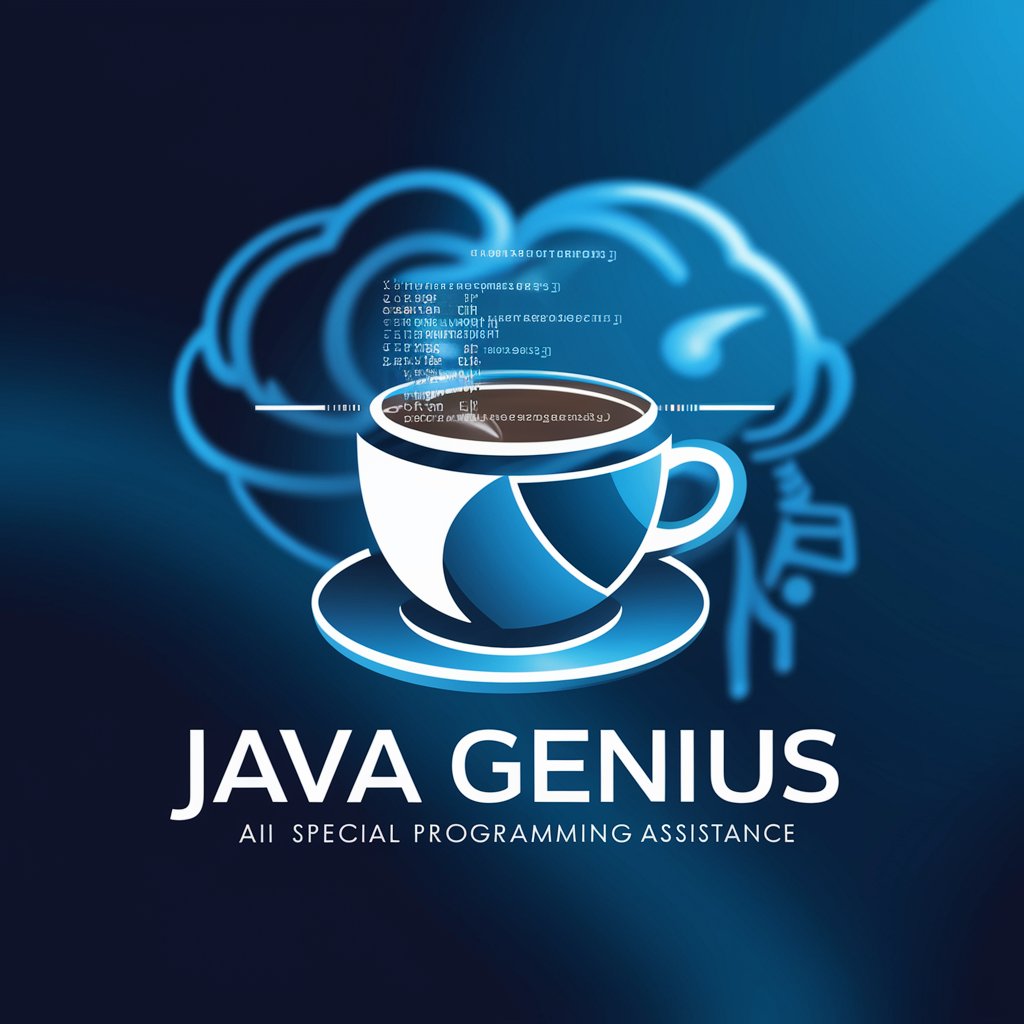
Java - Java Learning Platform

Welcome to Java Genius, your multilingual Java programming assistant!
Empowering development with AI-driven Java guidance
Explain the concept of inheritance in Java and provide an example.
How do interfaces differ from abstract classes in Java?
Can you show me how to implement polymorphism in a Java program?
What are the best practices for exception handling in Java?
Get Embed Code
Introduction to Java
Java is a versatile, object-oriented programming language designed for flexibility, allowing developers to write code once and run it anywhere. This 'write once, run anywhere' (WORA) capability is a cornerstone of Java's design, achieved through the Java Virtual Machine (JVM), which abstracts the underlying hardware. Java's design principles focus on security, portability, high performance, and architectural neutrality. It's extensively used for building enterprise-scale applications, mobile applications (Android), and web applications. For instance, the Netflix web architecture heavily relies on Java due to its robust features like multithreading, automatic memory management (garbage collection), and a rich standard library (Java API). Powered by ChatGPT-4o。

Main Functions of Java
Cross-platform development
Example
A Java application developed on a PC can run on any device equipped with a JVM, including smartphones, servers, and mainframes.
Scenario
Developers use Java to create Android apps, server-side applications (like web services), desktop applications, and more, ensuring portability across different platforms.
Object-oriented programming (OOP)
Example
Java's OOP capabilities allow for modular, flexible, and extensible software design.
Scenario
Developers leverage OOP principles like inheritance, encapsulation, and polymorphism to create reusable and maintainable code structures for large-scale applications.
Robust standard library
Example
Java API provides extensive tools and libraries for networking, file I/O, data structures, concurrency, and graphical user interfaces.
Scenario
This enables the creation of complex, high-performance applications across various domains, such as finance (automated trading systems), manufacturing (supply chain management systems), and healthcare (patient management systems).
Ideal Users of Java Services
Enterprise developers
Professionals developing large-scale, high-performance applications benefit from Java's robustness, security features, and scalable environment. Java's extensive use in enterprise applications, including backend systems, makes it a preferred choice for companies focusing on business operations.
Mobile app developers
Given Java's role as the primary language for Android development, mobile developers use Java to create diverse and functional Android applications, benefiting from Java's portability and rich APIs.
Academic and educational institutions
Educators and students in computer science programs often use Java as an introductory programming language due to its object-oriented features and widespread application, providing a solid foundation for understanding programming principles.

Using Java - Detailed Guidelines
Initiate Trial
Start by accessing yeschat.ai to engage in a free trial, no account creation or ChatGPT Plus subscription necessary.
Install Java
Ensure you have Java installed on your device. If not, download and install the Java Development Kit (JDK) from Oracle's official website.
Set Up IDE
Install an Integrated Development Environment (IDE) like Eclipse or IntelliJ IDEA to write, compile, and execute your Java programs efficiently.
Write Code
Use the IDE to create a new Java project and write your Java code. Begin with simple programs to understand syntax and structure.
Compile and Run
Compile your Java code to check for errors and run it to see the output. Use the IDE's built-in features to debug and improve your code.
Try other advanced and practical GPTs
EchoScript
Visual similarity, transformed semantics.

Code Reviewer Pro
Empowering developers with AI-driven code analysis

Crypto Scout
Empowering Your Crypto Journey with AI

Snout Scout
Refining Queries with AI Precision

Scout
Empower Your Survival and Wisdom with AI

Scout Pro
Elevating scouting with AI-driven insights.

Menu Translator
Translate menus with AI-powered precision.

Investor Scout
Connecting Startups with the Right Investors

Abogado jurídico
Empowering Legal Decisions with AI Expertise

SEO Helper ABO
Elevate Your SEO Game with AI

MoodFlix Help
Tailoring cinematic journeys with AI.

parent help
Empowering parents with AI-driven insights

Java Q&A
What is Java primarily used for?
Java is a versatile programming language used for developing desktop applications, web applications, mobile apps, and large-scale enterprise systems.
Can Java run on different platforms?
Yes, Java is platform-independent at the source level, which means you can run Java programs on any device equipped with a Java Virtual Machine (JVM).
What are some key features of Java?
Java offers features like object-oriented programming, portability, high performance through JIT compilation, and a robust standard library.
How does Java ensure security?
Java provides a secure runtime environment through the JVM, which includes features like bytecode verification and sandboxing.
What is the significance of the Java API?
The Java API provides a vast set of reusable code, libraries, and frameworks, enabling developers to build applications more efficiently.





